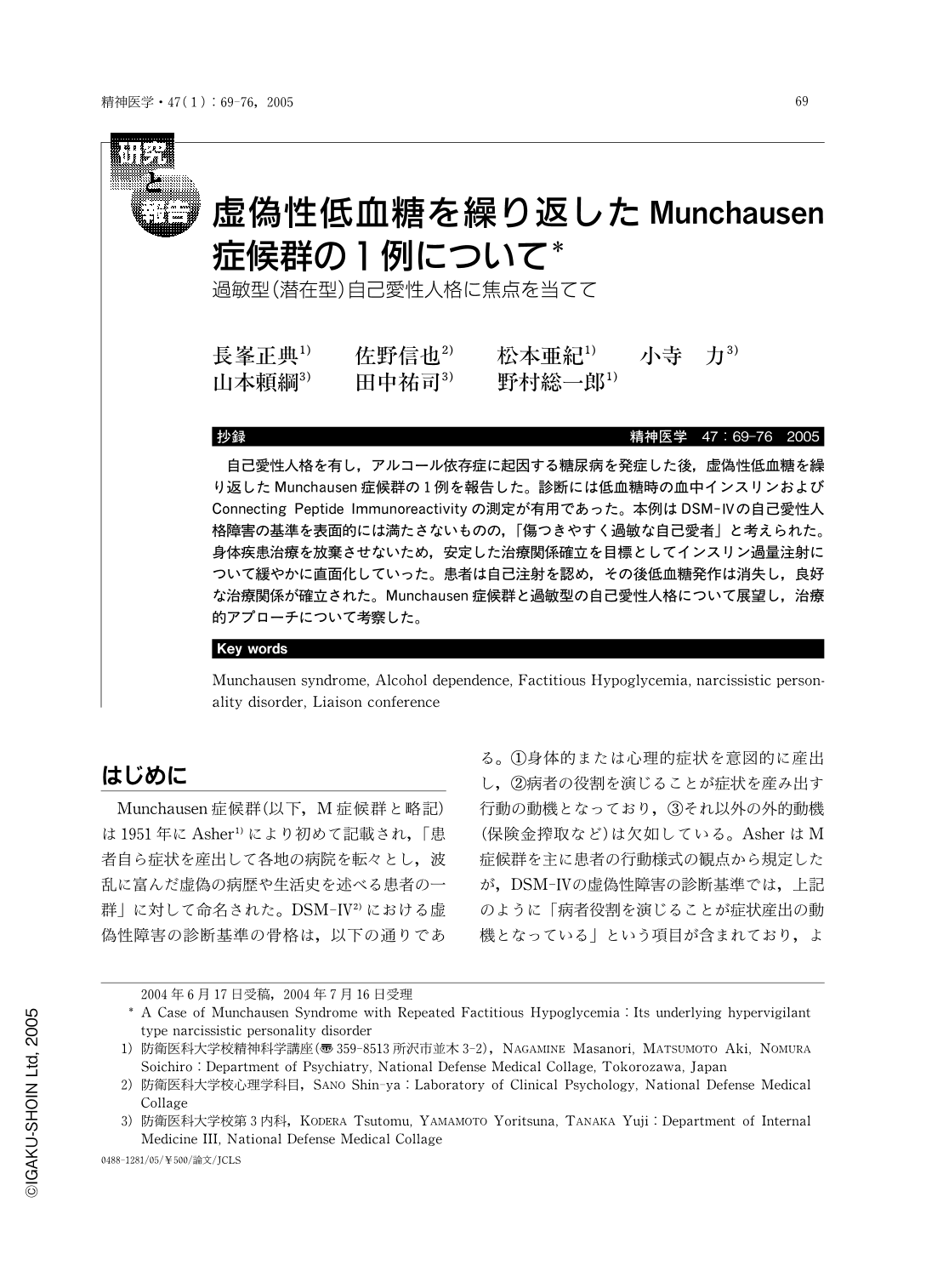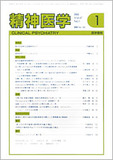Japanese
English
- 有料閲覧
- Abstract 文献概要
- 1ページ目 Look Inside
- 参考文献 Reference
抄録
自己愛性人格を有し,アルコール依存症に起因する糖尿病を発症した後,虚偽性低血糖を繰り返したMunchausen症候群の1例を報告した。診断には低血糖時の血中インスリンおよびConnecting Peptide Immunoreactivityの測定が有用であった。本例はDSM-Ⅳの自己愛性人格障害の基準を表面的には満たさないものの,「傷つきやすく過敏な自己愛者」と考えられた。身体疾患治療を放棄させないため,安定した治療関係確立を目標としてインスリン過量注射について緩やかに直面化していった。患者は自己注射を認め,その後低血糖発作は消失し,良好な治療関係が確立された。Munchausen症候群と過敏型の自己愛性人格について展望し,治療的アプローチについて考察した。
Summary
A case history is presented for a male patient with alcoholism and diabetes mellitus who has manifested factitious hypoglycemia (Munchausen Syndrome). The blood insulin level and connecting peptide immunoreactivity were measured in order to diagnose the patient's factitious hypoglycemia. It is well known that people with narcissistic personality disorder (NPD), which is formed through insufficient empathic responses from their caregivers, often develop alcohol dependence. Kohut described the vulnerability and hypersensitive self-esteem of NPD's to any criticism and realistic setbacks. Many psychoanalytic researchers elaborated Kohut's theory, who established comprehensive understanding of NPD including two subtypes, overt and covert. Each subtype shares the essential features of NPD, invariably disturbed regulation of self-esteem and inability to sustain a proper sense of self-worth. However, DSM-VI fails to describe the covert type of NPD which presents apparent shyness and humility in spite of underlying grandiose self-representation. The patient had been raised by his abusive alcoholic father and emotionally unstable mother. His mother killed herself after severe marital conflict when he was eleven years old. After adolescence, he experienced chronic feelings of emptiness and powerlessness. Consequently, he came to be so afraid of being abandoned by others that he continuously avoided having intimate relationships with them.This attitude, which seemed to be formed through his difficult life circumstance, meets the description of covert-type NPD. It seemed that the patient's alcoholism protected his grandiose self-fantasy and that his disguised hypoglycemia satisfied his need for dependency, without forming emotional relationships with his medical staff. The patient was gradually confronted by his care givers about his excessive self-administration of insulin for the purpose of ensuring that he continue to receive physical treatment. At last he admitted his self-injurious behavior and his hypoglycemic attacks diminished. The link between Munchausen Syndrome and NPD, and therapeutic strategy was examined.

Copyright © 2005, Igaku-Shoin Ltd. All rights reserved.


